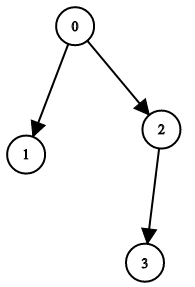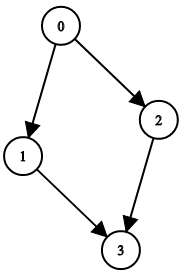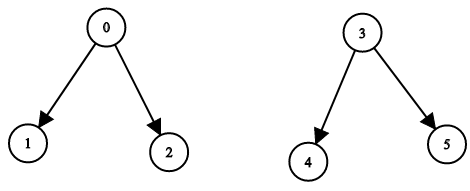動機
把需要的spec定義出來就好
Problem
You have n binary tree nodes numbered from 0 to n - 1 where node i has two children leftChild[i] and rightChild[i], return true if and only if all the given nodes form exactly one valid binary tree.
If node i has no left child then leftChild[i] will equal -1, similarly for the right child.
Note that the nodes have no values and that we only use the node numbers in this problem.
Example 1:

Input: n = 4, leftChild = [1,-1,3,-1], rightChild = [2,-1,-1,-1]Output: true
Example 2:

Input: n = 4, leftChild = [1,-1,3,-1], rightChild = [2,3,-1,-1]Output: false
Example 3:

Input: n = 2, leftChild = [1,0], rightChild = [-1,-1]Output: false
Example 4:

Input: n = 6, leftChild = [1,-1,-1,4,-1,-1], rightChild = [2,-1,-1,5,-1,-1]Output: false
Constraints:
1 <= n <= 104leftChild.length == rightChild.length == n-1 <= leftChild[i], rightChild[i] <= n - 1
Sol
- 只有一個root
- 沒有loop
- 所有點都要被走過
class Solution:
def validateBinaryTreeNodes(self, n: int, leftChild: List[int], rightChild: List[int]) -> bool:
root = set(range(n)) - (set(leftChild) | set(rightChild))
if len(root) != 1:
return False
else:
root = list(root)[0]
seen = set()
def dfs(i):
if i == -1:
return True
elif i in seen:
return False
else:
seen.add(i)
return dfs(leftChild[i]) and dfs(rightChild[i])
return dfs(root) and len(seen) == n